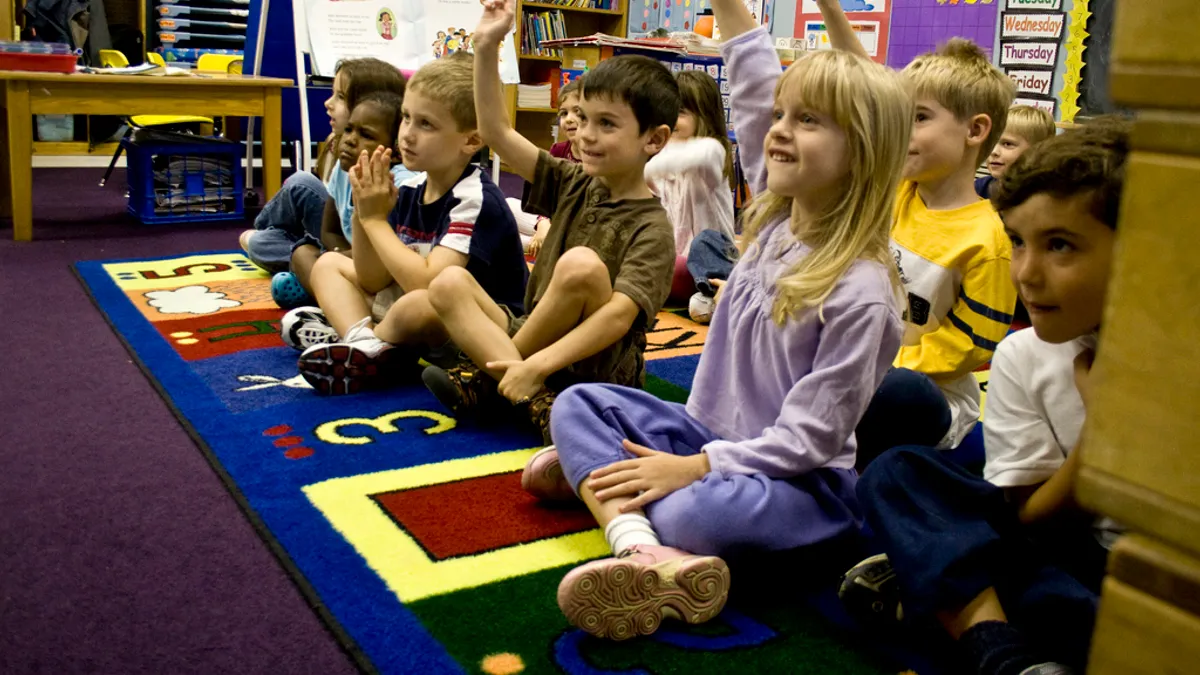Dive Brief:
- Students who were less attentive than their peers in kindergarten earned less money as adults, and boys who were aggressive or who exhibited less “pro-social” behavior at age 6 had lower annual employment earnings three decades later, according to a recent Canadian study. These same conclusions did not hold true for girls, but the reasons for the disparity between genders is not clear, according to an analysis of the study by the Hechinger Report.
- The researchers found that boys who were rated as just one point more inattentive than their peers made $1,271 less annually as adults. Greater aggression levels in boys reduced annual income by $700 and more social boys earned roughly $477 more per year.
- While past studies have demonstrated the importance of self-control in kindergarten for later success, this study is the first to break down the components of self-control that can be impacted by teachers. Improving self-control for 5- and 6-year-olds requires teachers and parents to know how to elicit better behavior, teach children problem-solving strategies and incorporate more physical activity into the classroom. Practicing meditation and mindfulness are also approaches many schools are using, although the effectiveness of some of these strategies has been called into question.
Dive Insight:
Many factors that contribute to a student's likelihood of success — IQ, poverty, health, social and family issues — are beyond an educator’s control. However, teaching behavioral and social skills, increasing attention levels, improving self-control, and focusing on ways to diminish aggression are some steps that an educator can take in the early years to improve students' chances of success in school and life.
Educators can incorporate social-emotional learning (SEL), teach self-control and practice classroom management skills that encourage better behavior. Increasing levels of physical activity can also improve behavior and even increase cognitive functioning, according to a study published last year. And while the research on mindfulness has been inconclusive, many teachers have found that such strategies have had positive effects in their classrooms, particularly when it comes to reducing stress and improving focus.
Teachers, however, need support for these efforts to succeed. A 2012 University of Alabama study on effective interventions to prevent chronic aggression in children notes that parents play an important role in implementing these strategies and developing a “whole-child” approach. The authors note that in order to get the best outcomes, schools must offer collaborative problem-solving methods for parents as well as SEL in the classroom. In addition, a more recent study showed that at the preschool level, stronger relationships between teachers and parents can reduce the chances that a child will be expelled or asked to leave the program.
Communicating to parents the links between student behavior and future academic and financial success can give them more reasons to reinforce positive behavior at home.







 Dive Awards
Dive Awards






